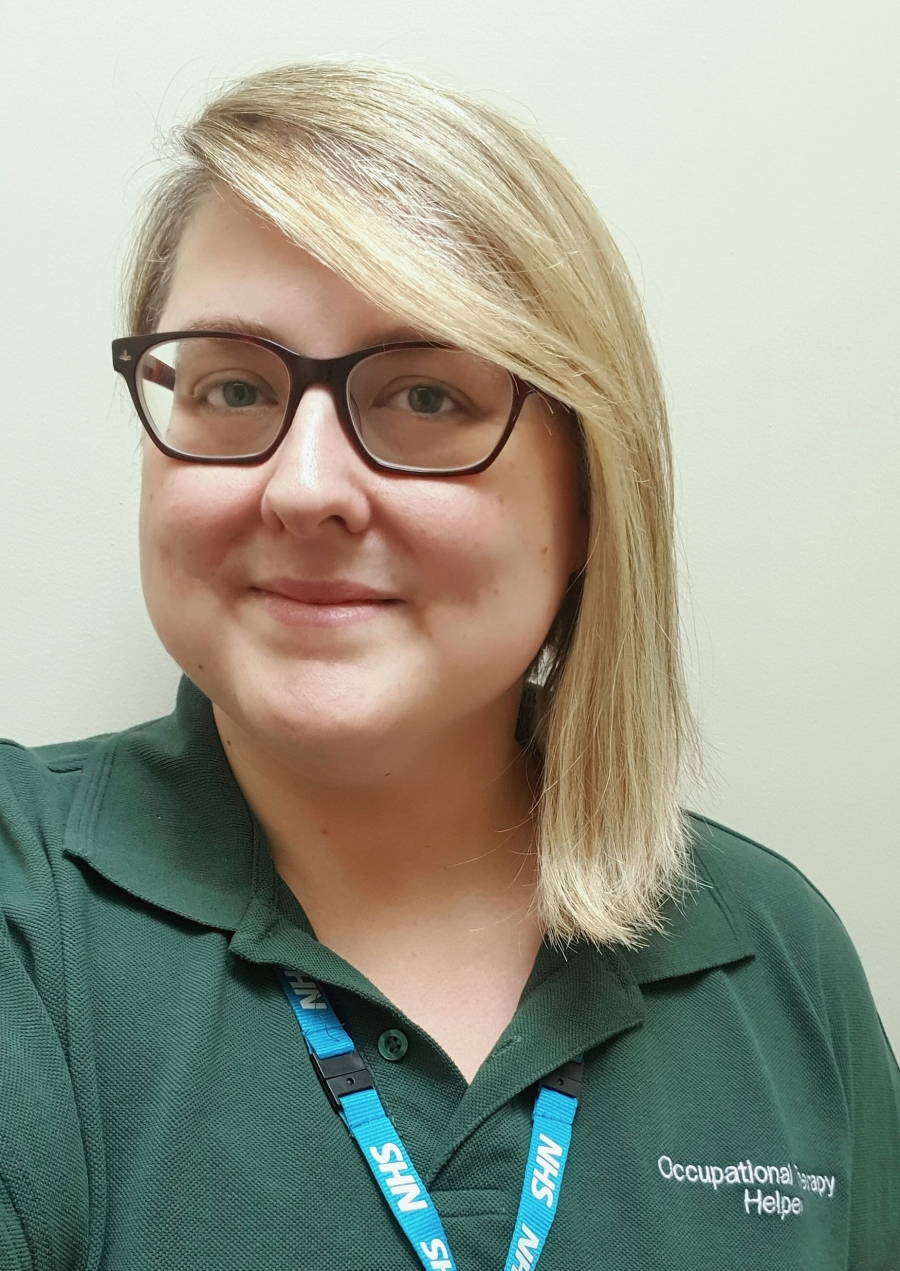Rachel is sharing her story this World Mental Health Day, to inspire people to be open and seek mental health support should they need it, and to highlight the importance of talking about mental health both in and out of the workplace.
Based in the Occupational Therapy Team at one of our hospitals, Rachel credits the Trust she now works for, for saving her life. At just 13 and following a number of traumatic incidents in her childhood, Rachel began self-harming.
Rachel explains:
“Back then I was so young and really didn’t have any coping skills, so I remember thinking that doing that helped. Of course it didn’t and it doesn’t. I’d urge anyone now to realise help is available, speak up, help is available. Messages about not being good enough peppered my childhood so my self-esteem and confidence were low as a result and my mental health decline was a slow burn.”
Rachel clearly recalls a time when she had an office job and remembers having suicidal thoughts.
By her mid-twenties Rachel was diagnosed with a personality disorder.
Rachel explains:
“I did okay at school, but by sixth form my mental health really did take a nosedive. There were times when I had months off because I developed social anxiety. Even small groups of people would trigger panic attacks. So I didn’t do well, I got a job in a cinema and continued self-harming.”
That pattern continued, and Rachel started hearing voices and seeing figures. At 25, she was having suicidal thoughts daily and she was admitted into the care of the Trust.
Rachel says:
“There were some serious incidents of self-harm, anxiety and depression and I was diagnosed as bipolar before the psychiatrist changed the diagnosis to a personality disorder. There were some dark times with pseudo hallucinations and voices. The voices included someone who was constantly talking about me negatively and then it became a face I could see clearly.”
Rachel credits a two year life skills course prescribed by a specialist personality disorder practitioner at the Trust for changing her life for the better.
Rachel explains:
“The medication from the Psychiatry Team balanced the chemicals in my brain and the life skills course the team delivered gave me the tools to recover and the confidence to volunteer. Volunteering helped me grow, I eventually volunteered in occupational therapy, loved it, and I’m now working two days a week with people in Guild Lodge while training at university to become a qualified occupational therapist and work for the Trust full time.
I’m so much better all these years later, I am well, happily married and now I’m helping people with their mental health, supporting them to achieve goals with occupational therapy. It’s true to say that without LSCft I would not be alive.
I want everyone to know that help is out there, my tips are, access therapy, be patient and know there is hope and we can help.”
Did you know there are different ways to contact us for mental health support or if you’re in crisis?
If you, or someone you know, needs to reach out for mental health support call
0800 953 0110.
You can also dial 111 and select the mental health support option to get through to our teams.
You can also self-refer to our NHS Talking Therapies.
Get the help you need. We are here.

